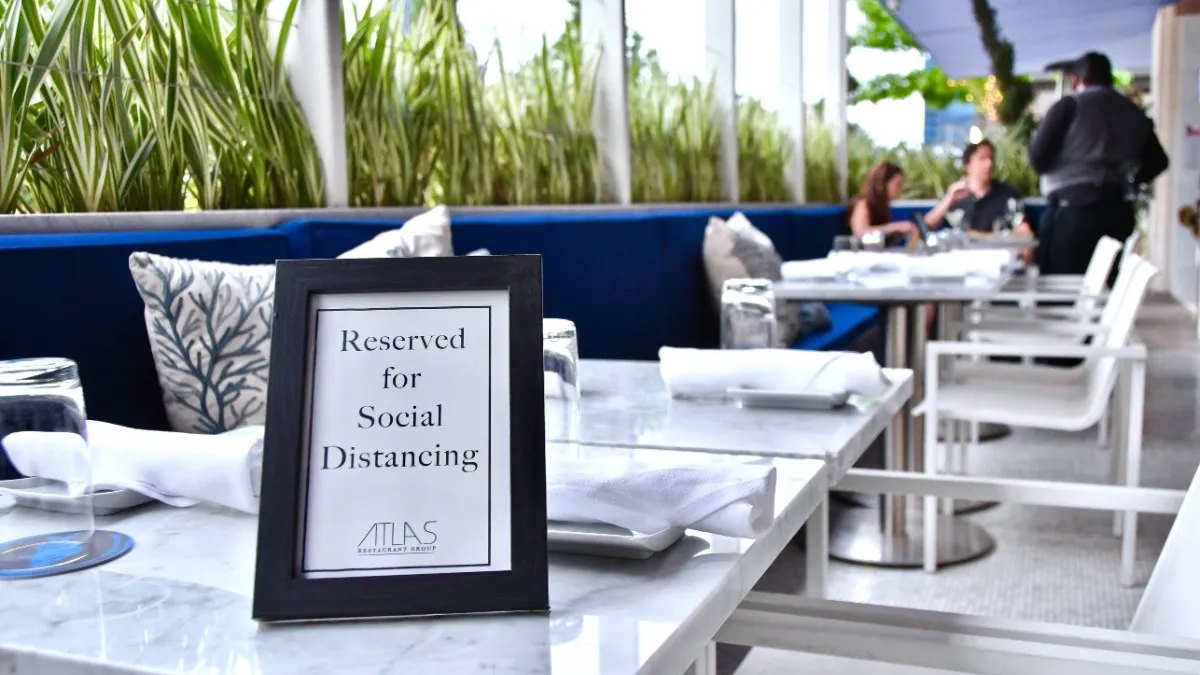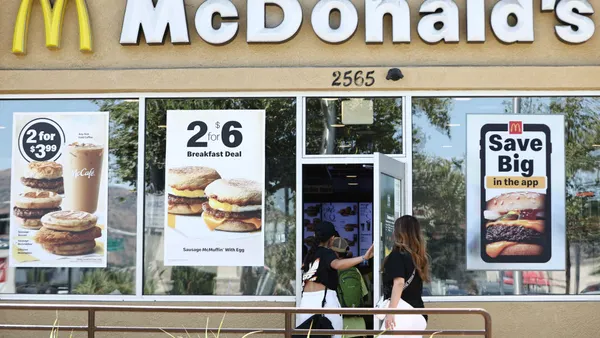Dive Brief:
- Chicago Mayor Lori Lightfoot introduced an ordinance Thursday to make the city’s outdoor dining program permanent. The ordinance is supported by the Chicago Department of Transportation and the Chicago Department of Business Affairs and Consumer Protection, according to a press release from the Mayor’s Office.
- Chicago’s Expanded Outdoor Dining program was first established in 2020 as a response to indoor dining restrictions during the early months of the COVID-19 pandemic, and has been extended twice.
- The proposed ordinance builds on that initial framework, establishing an outdoor dining street permit issued by CDOT and valid from May 1 through Oct. 31 annually.
Dive Insight:
Chicago’s outdoor dining program, which was due to expire at year’s end, has supported hundreds of restaurants. Fox 32 Chicago reported that as many as 700 different restaurants and bars received initial permits. The option provided a big enough lifeline for operators that 90% said they would continue to offer outdoor dining if their jurisdiction were to allow it.
The ordinance aims to improve accessibility by permitting restaurants to operate in curb lanes where the adjacent sidewalk is not wide enough to accommodate a sidewalk café. By extending the program, city restaurants can also continue to provide open air seating for diners concerned about COVID-19 transmission, though case numbers have fallen considerably since January. Still, parts of the U.S. remain hotspots, and changes in testing programs make it difficult to accurately assess the number of infections.
“The Expanded Outdoor Dining Program was implemented during the pandemic to ensure the continued operations of our restaurants while keeping workers and customers safe. I’m pleased that Chicago is now building upon the success of this program and establishing long-term ways to support our hospitality and dining industries with inviting dining spaces throughout our neighborhoods,” Lightfoot said in a statement.
Chicago isn’t the only jurisdiction to accommodate operator and consumer demand. A Los Angeles County legislator recently submitted a motion to extend permits allowing restaurants to provide outdoor dining, for instance. Folsom, California, is considering an ordinance to do the same. San Francisco’s “Shared Spaces” program was recently made permanent, with more than 1,000 restaurants adding outdoor dining spaces.
New York City Mayor Eric Adams declared last month that the city’s outdoor dining was here to stay and created a task force including the Department of Transportation, the Department of Sanitation and the NYPD to consider stronger regulations and address grievances that have come up throughout the past two years.
Chicago’s proposed ordinance also takes safety issues into consideration and was created with input from restaurant operators and multiple city departments, including the Department of Transportation.
“CDOT has worked closely with BACP and other stakeholders to use the lessons learned over the past two years to create a permanent program that is beneficial for residents, local businesses and neighborhoods,” CDOT Commissioner Gia Biagi said in a statement.
While many cities and towns are working to make outdoor dining permanent, outdoor dining has been rolled back in other jurisdictions. Golden, Colorado, just discontinued outdoor dining in its Miner’s Alley district, for example, while Santa Monica, California is considering ending some of its outdoor dining spaces.













